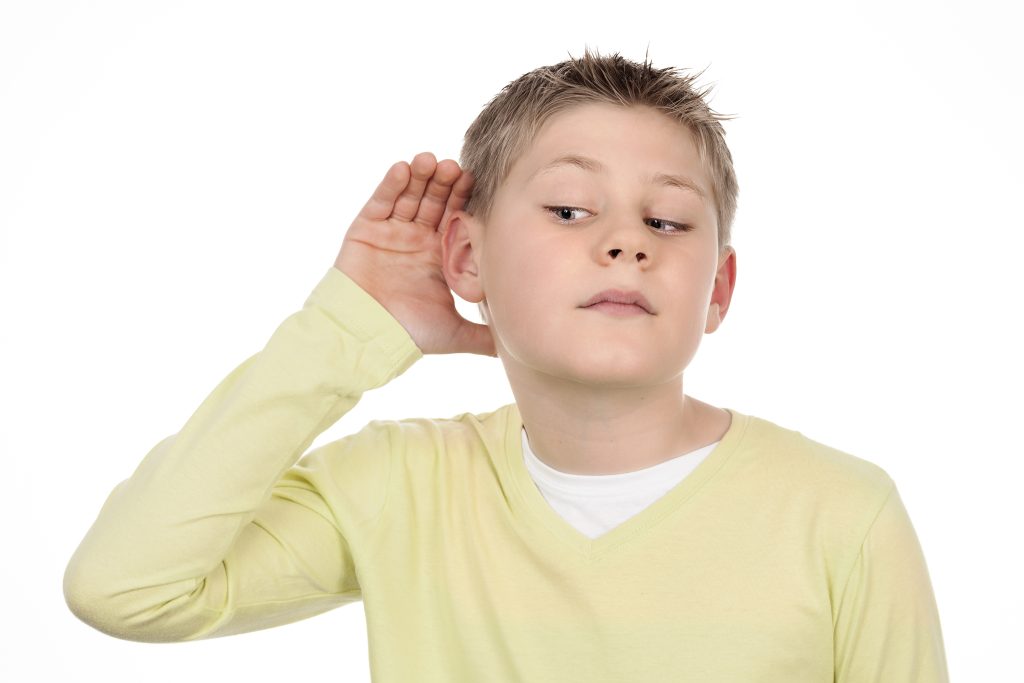Pediatric Hearing Aids
2 to 3 children per 1,000 Face Challenges Related to Hearing Loss

In the United States, statistics indicate that around 2 to 3 children per 1,000 face challenges related to hearing loss, as reported by the National Institutes of Health. Timely intervention plays a pivotal role in determining the permanence of your child’s hearing impairment and their capacity to adapt to it in the long run.
Early intervention for children grappling with hearing loss is instrumental in nurturing their language skills, ensuring they have equal opportunities for socialization with their peers, and facilitating their active participation in their education, which is crucial for their overall development.
Wisconsin Hearing Aid Centers specializes not only in addressing adult hearing loss and hearing devices but also in providing specialized care for pediatric hearing loss and fitting pediatric hearing aids. If hearing aids are recommended for your child, our team of experts in pediatric hearing loss and treatment is ready to assist.
Different Types of Hearing Aids for Children: The choice of pediatric hearing aids suitable for your child depends on several factors, such as their age and the nature of their hearing impairment.
In-the-Ear Hearing Aids: These hearing aids come encased in a plastic shell that fits over your child’s ear. They are well-suited for children with mild to severe hearing loss and can be used in conjunction with other hearing devices. While these aids are discreet and compact, their small size can make adjustments somewhat challenging.
Behind-the-Ear Hearing Aids: These aids consist of a hearing device housed in a case that attaches to a plastic ear mold on the outer ear. This is one of the most common options and can benefit children with mild to severe hearing loss, including young children and infants. Proper fitting is essential to prevent feedback issues.
Bone-Anchored Hearing Aids: Suitable for children over five years of age, these aids function by vibrating the skull bone, bypassing obstacles to sound reaching the inner ear. Unlike bone-conduction hearing aids, bone-anchored aids involve surgical implantation using a titanium screw. They can be an excellent choice for children with external ear canal problems or single-sided hearing loss. Surgical procedures and maintenance are involved in this option.
Factors to Consider When Fitting Hearing Aids for Children: When selecting and fitting hearing aids for children, several critical factors come into play, including the degree and type of hearing loss, the child’s age, the size and shape of the ear canal, and their lifestyle.
Hearing loss in children is categorized into mild, moderate, severe, and profound, each requiring specific considerations when choosing hearing aids.
You must also determine whether the hearing loss is conductive or sensorineural, and adapt the choice accordingly.
Age plays a crucial role, as younger children may require more robust and durable hearing aids.
Considering the size and shape of the ear canal ensures proper fit and comfort.
Lifestyle, such as involvement in sports, influences the selection of the most suitable hearing aids.
Due to these complexities and variations, a comprehensive hearing evaluation conducted by professionals is essential.
Tips for Parents of Children with Hearing Aids: Adapting to pediatric hearing loss and the use of hearing aids can be a challenge for both your child and yourself. Here are some tips:
- Gradually introduce hearing aids and allow your child to adjust to them.
- Encourage personalization with names or stickers to make them more appealing.
- Explain the purpose of the hearing aids in a way your child can understand and encourage questions.
- Maintain the hearing aids by avoiding extreme temperatures and using hairspray sparingly.
- Keep track of battery life, particularly for young children who might not indicate when the hearing aid is not functioning.
- Ensure hearing aids are not worn during swimming or showering and clean them nightly for the next day’s use.
The Importance of Hearing Loss Evaluation: If you suspect your child may be facing hearing difficulties, seeking an evaluation is crucial. Audiologists can provide an accurate diagnosis and guide you in selecting the most suitable pediatric hearing aids. Delaying this step can adversely affect your child’s speech, language development, and overall social and educational growth. Even if you’re uncertain about your child’s hearing, consulting experts is a wise choice.
Contact Wisconsin Hearing Aid Centers to schedule a consultation for comprehensive pediatric hearing loss evaluation and treatment services tailored to your child’s needs.
Consult with us for the best outcome for your child.

- We Sell & Service most hearing devices
- In business since 1960
- Not owned by a manufacturer
We're Near You!
We have offices near you. We also offer In-Home visits in case you can't make it in.

